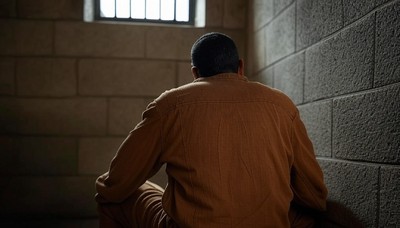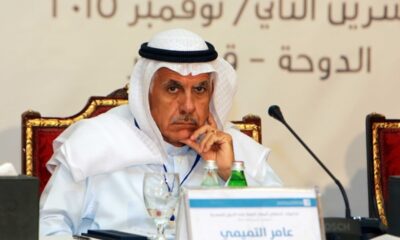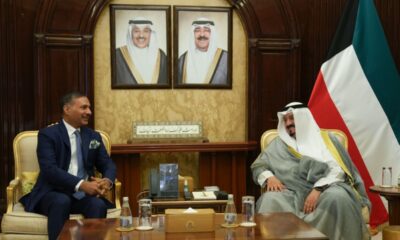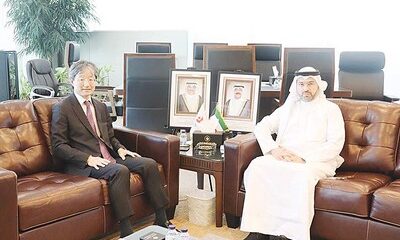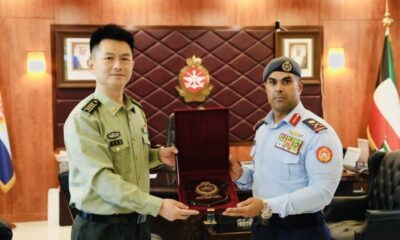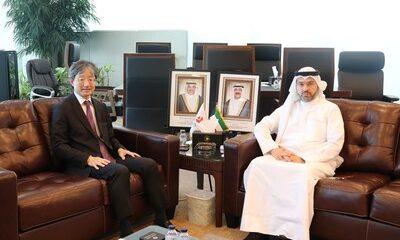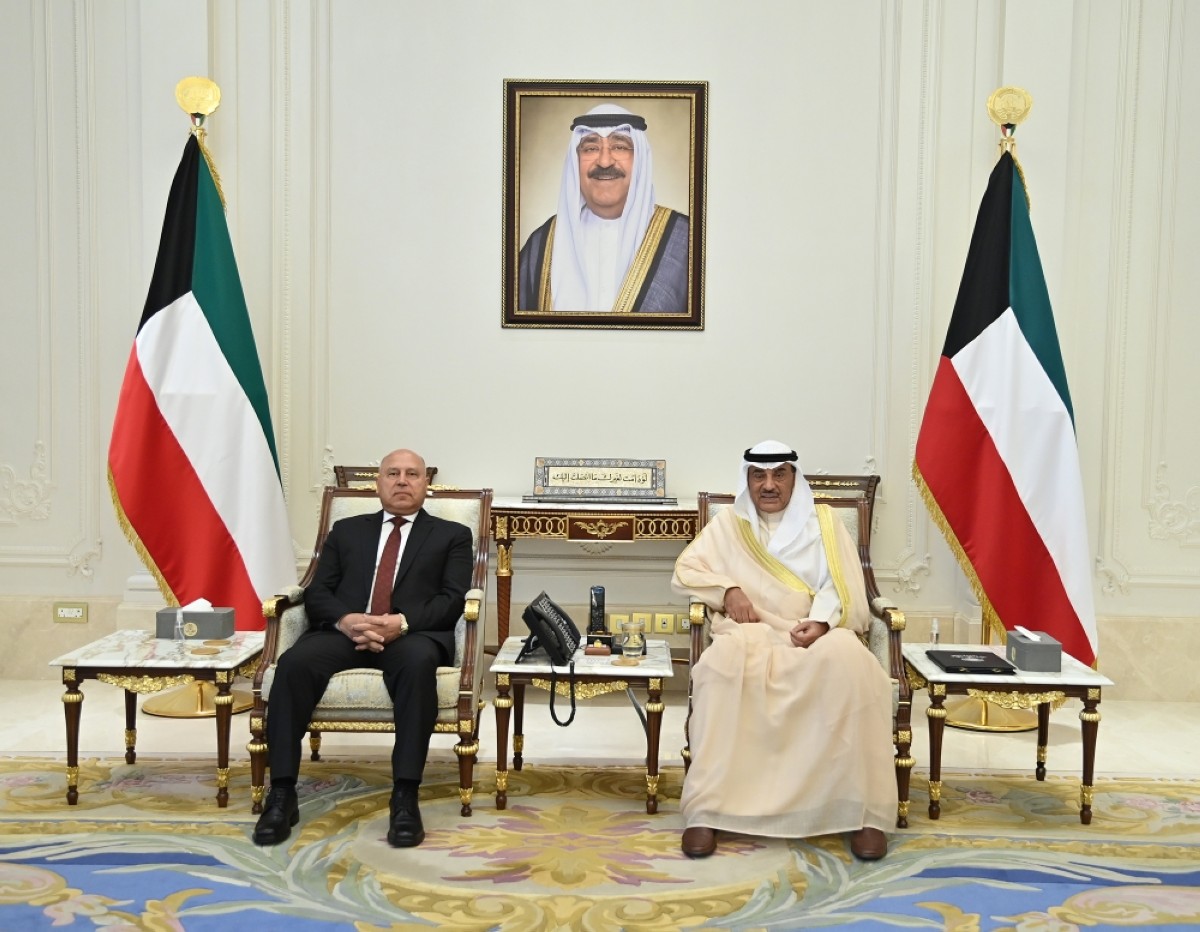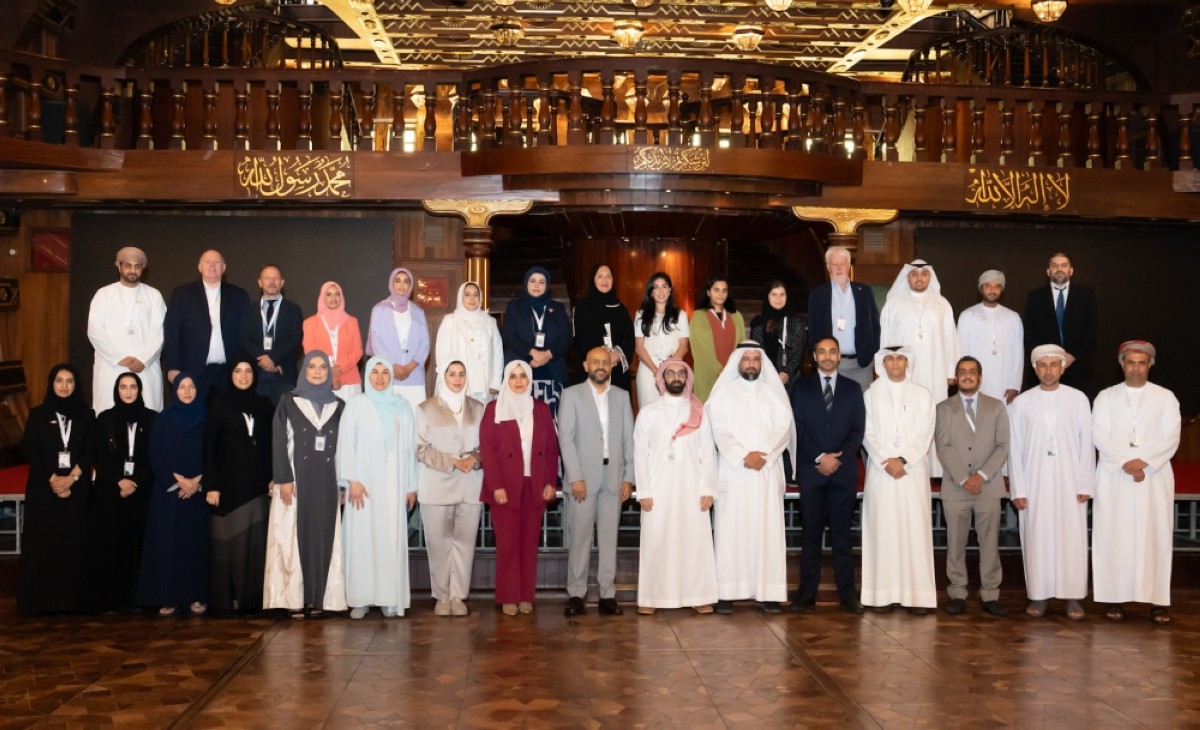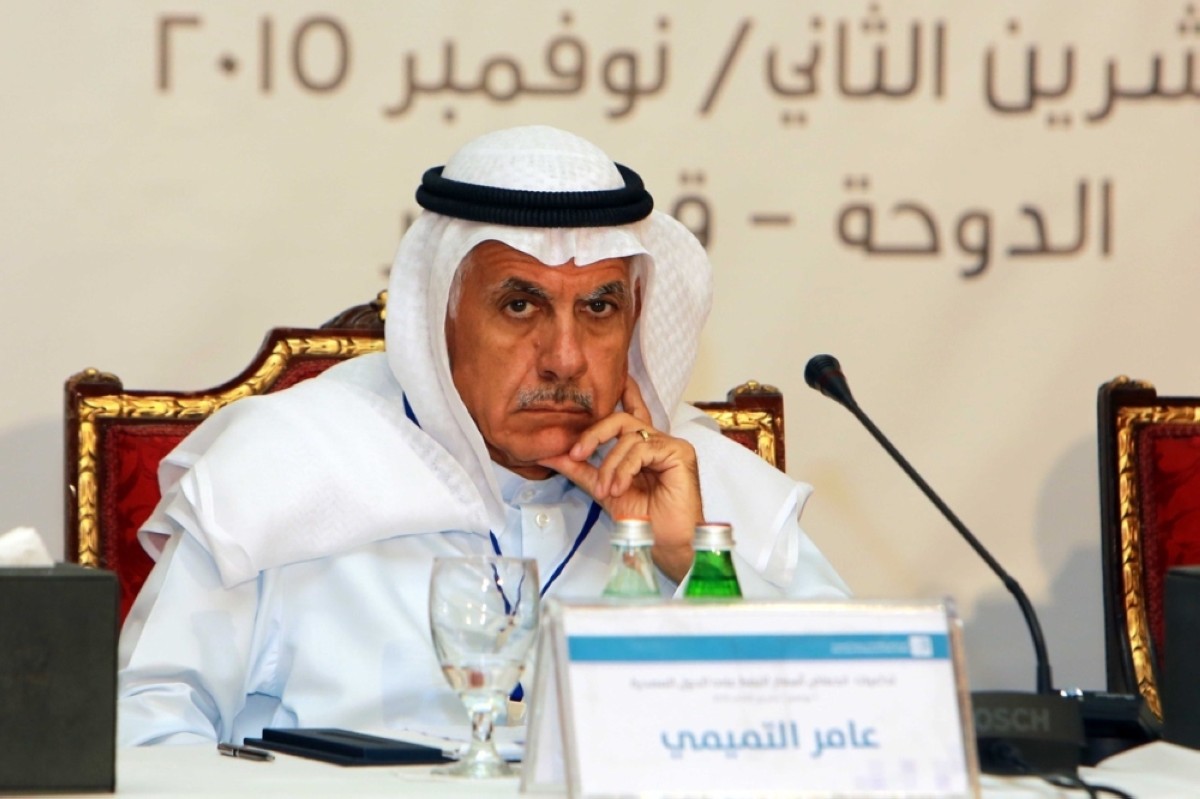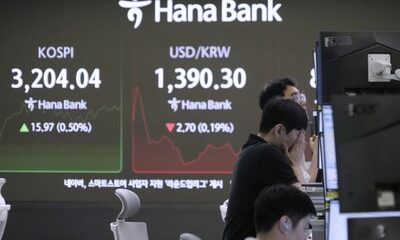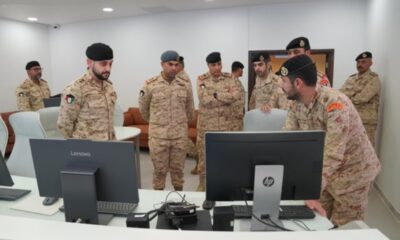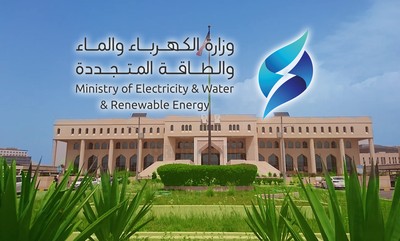KUWAIT: The official visit of Syrian President Ahmed Al-Sharaa and his accompanying delegation to Kuwait Sunday carries special significance in the context of Kuwaiti-Syrian relations. During the visit, he held official talks with His Highness the Amir Sheikh Meshal Al-Ahmad Al-Jaber Al-Sabah, affirming Kuwait’s steadfast and supportive stance toward Syria, its people, unity, and full sovereignty over its territory.
Formal diplomatic ties between Kuwait and Syria were established on October 24, 1963, with Syria opening its first embassy in Kuwait. This was soon followed by the opening of the Kuwaiti Embassy in Damascus, marking a new phase of constructive cooperation and joint coordination on Arab and international issues. Over six decades, these relations have witnessed fruitful collaboration across various fields.
However, between 2012 and 2024, relations were interrupted due to the security situation in Syria. On March 15, 2012, Kuwait announced the closure of its embassy in Damascus, in line with the Gulf Cooperation Council’s (GCC) position and due to deteriorating security conditions. Kuwaiti diplomats were instructed to leave Syria, and remaining Kuwaiti citizens were urged to depart swiftly.
On December 30 of last year, ties witnessed a significant development with the visit of Kuwaiti Foreign Minister Abdullah Al-Yahya to Damascus in his capacity as Chairman of the GCC Ministerial Council—a step reflecting the GCC’s commitment to regional security and stability. Following his meeting with Syria’s new head of government, President Ahmed Al-Sharaa, Al-Yahya stated that the visit delivered a message of solidarity from the GCC, affirming its unwavering position on the importance of preserving Syria’s unity, territorial integrity, sovereignty, and rejecting external interference in its internal affairs.
HH the Amir, HH the Crown Prince, and HH the Prime Minister Sheikh Ahmad Al-Abdullah Al-Sabah meet Syrian officials during their visit to Kuwait.
Crown Prince of Kuwait Sheikh Sabah Al-Khaled Al-Hamad Al-Sabah waves goodbye to Syria’s President Ahmed Al-Sharaa. — Photos by Kuwait’s Amiri Diwan and SANA / AFP
Sheikh Meshal Al Ahmad Al Jaber Al Sabah welcomes Ahmed Al-Sharaa at Bayan Palace in Kuwaiti City on June 1, 2025.
He also noted that His Highness the Amir Sheikh Meshal Al-Ahmad Al-Jaber Al-Sabah had directed the provision of urgent food and medical aid to the Syrian people in response to the pressing humanitarian situation. That same day, Kuwait launched the first flights of a humanitarian air bridge to support the Syrian people, in line with Kuwait’s leading humanitarian role and its commitment to alleviating suffering and expressing solidarity with Syrians.
The Kuwait Red Crescent Society, tasked with managing the air bridge, stated that the aid aims to address shortages in supplies and provide basic necessities to help Syrians meet their daily living needs.
Over the past decades, leaders and high-level officials from both countries have engaged in reciprocal visits, including delegations of businesspeople and investors, with the goal of strengthening cooperation across sectors, sharing successful experiences, and exchanging expertise to advance development in both nations.
Kuwait and Syria are linked by numerous agreements and memoranda of cooperation, particularly in the economic, commercial, scientific, and technical fields. Since 1969, the Kuwait Fund for Arab Economic Development (KFAED) has financed several development projects in Syria, especially in transportation, water, energy, industry, and communications.
Syria also contributed to the liberation of Kuwait in 1991 by dispatching troops as part of the international coalition in implementation of United Nations resolutions. Kuwait, in turn, has repeatedly affirmed its support for Syria’s efforts to regain its occupied Golan Heights.
Kuwait took a clear stance on the Syrian crisis that began in 2011. It called, through the UN Security Council, for an end to war crimes, the facilitation of humanitarian aid delivery, and the lifting of sieges on civilian areas. Kuwait expressed grave concern over the continued use of heavy and internationally banned weapons against innocent civilians. It strongly condemned the forced displacement of the Syrian people and repeated attacks on medical facilities and civilian infrastructure, including airstrikes. Kuwait has stressed the need for international action to end the violence in Syria. Kuwait hosted the first three international donor conferences to support the humanitarian situation in Syria in 2013, 2014, and 2015, raising significant pledges—over 90 percent of which were fulfilled. In February 2016, Kuwait co-chaired the fourth donor conference with the UK, hosted in London, focusing on Syria and support for neighboring countries bearing the burden of the crisis.
Kuwait has continued to participate in subsequent donor conferences, most recently the Brussels Conference hosted by the European Union in March this year. The conference was attended by Syrian Foreign Minister Asaad Al-Shaibani and featured high-level international, Arab, and regional participation.
Through KFAED, the Kuwait Red Crescent, and various Kuwaiti charities, Kuwait has provided significant humanitarian aid to displaced Syrians inside the country and to refugees in neighboring countries, especially Lebanon, Jordan, and Turkey. Over the past five months, Kuwait has reaffirmed through numerous statements by the Ministry of Foreign Affairs its consistent position supporting Syria’s unity and full sovereignty. It stressed the importance of international solidarity and stepped-up humanitarian and development efforts to support the Syrian people and ease their suffering.
On December 9, 2024, Kuwait condemned the Zionist entity’s occupation forces’ takeover of the buffer zone on the Syrian border, calling it a blatant violation of international law and UN Security Council resolutions. On May 2, it also condemned an airstrike launched by those forces near the presidential palace in Damascus, again calling it a clear violation of Syrian sovereignty.
On May 13, Kuwait welcomed US President Donald Trump’s announcement lifting sanctions on Syria. On May 21, Kuwait welcomed the European Union’s decision to lift economic sanctions on Syria, describing it as an important step toward rebuilding the country and meeting its people’s aspirations for development and prosperity. — KUNA





